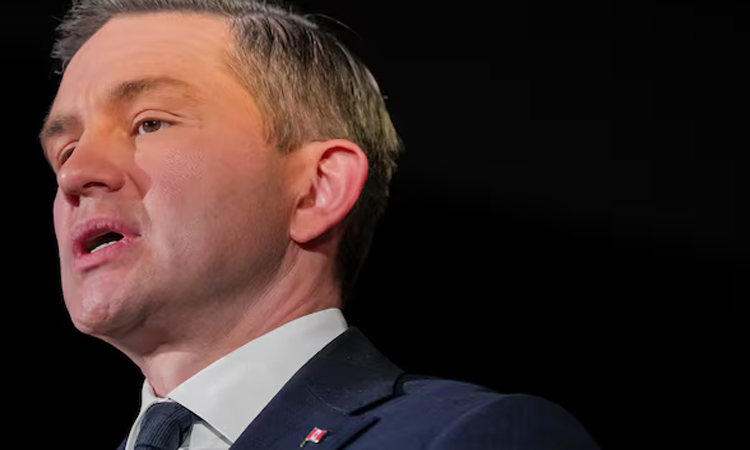News Flash

TORONTO, Canada, Aug 16, 2025 (BSS/AFP) - Pierre Poilievre, who is running to reclaim a seat in Canada's parliament next week, was on track to be prime minister until Donald Trump upended Canadian politics.
But even if the Conservative Party leader wins Monday's by-election in one of the country's most right-wing districts, experts say he may struggle to regain momentum in a political arena still heavily shaped by the US president.
Poilievre's Conservatives blew a massive polling lead in the run-up to Canada's April general election, as voters backed the new Liberal leader, Prime Minister Mark Carney, to confront Trump.
In a stinging humiliation, Poilievre lost to a Liberal in his own constituency, an Ottawa-area district he had represented for two decades.
But the Conservatives performed solidly overall and deprived the Liberals of a majority, allowing Poilievre to suppress calls for him to go as party leader.
To return as opposition leader, Poilievre needed to get back into parliament.
The MP for Battle River-Crowfoot -- a rural district in the western province of Alberta where Conservatives dominate -- offered to step down so Poilievre could run for his seat.
Poilievre is the favorite but faces an uncertain path should he rejoin parliament, in part because some voters continue to see him as "a little Trump," said Frederic Boily, a University of Alberta political scientist.
In Canada, that is not a good brand.
- Trump tension -
New Gallup data puts Canadian attitudes towards US political leadership at record lows.
While the president's threats to make Canada the 51st US state have subsided, his trade war is hurting crucial industries.
The Gallup survey shows only 15 percent of Canadians approve of Washington, the lowest level on record in data going back to 2008. The next lowest approval rate -- 16 percent -- was recorded in 2018, during Trump's first term.
Seventy-nine percent of Canadians disapprove of US political leadership, a figure only three points better than attitudes towards Vladimir Putin's Russia.
Canadian faith in their own leadership has also jumped to 59 percent, a rise of 19 points since Carney replaced former prime minister Justin Trudeau.
Poilievre has sought to make clear that he sees Trump as a rival, but one that Carney is failing to confront.
"President Trump is the one putting these tariffs on Canadians, but Mark Carney is the one who promised Canadians he could 'handle him' and 'win,'" Poilievre said this month.
- 214 candidates -
For Donald Abelson, an expert on US-Canada relations at McMaster University, Poilievre is trying to "feed off the frustration and disillusionment in Canada about the imposition of tariffs and the bullying (while saying) that he, unlike Carney, is prepared to stand up to Trump."
The strategy is limited, Abelson argued, as Canadians want a long-term plan to realign the country away from the United States -- a central Carney talking point.
"If Poilievre overplays the Trump card, he's making a mistake," Abelson told AFP.
Boily, the political scientist, said Poilievre faces an additional problem -- an enduring attachment within his base to issues Trump has elevated.
"It's tough for any conservative leader not to talk about the fight against globalists and wokism because it's the new conservative reality," Boily told AFP, arguing Poilievre's "DNA" is more aligned with traditional conservatism, not Trump-inspired populism.
If Poilievre loses Monday's election, voter confusion will be the likely cause.
There are 214 candidates on the ballot, a record number caused by the Longest Ballot Committee protest group, which wants electoral law reform.
Poilievre was targeted by the same group in April, but organizers claim they are not motivated by partisan ideology.
Voters on Monday will have to write the name of their preferred candidate on their ballot, not tick a box, an exceptional measure designed to spare people finding the correct name on a 214-candidate list.